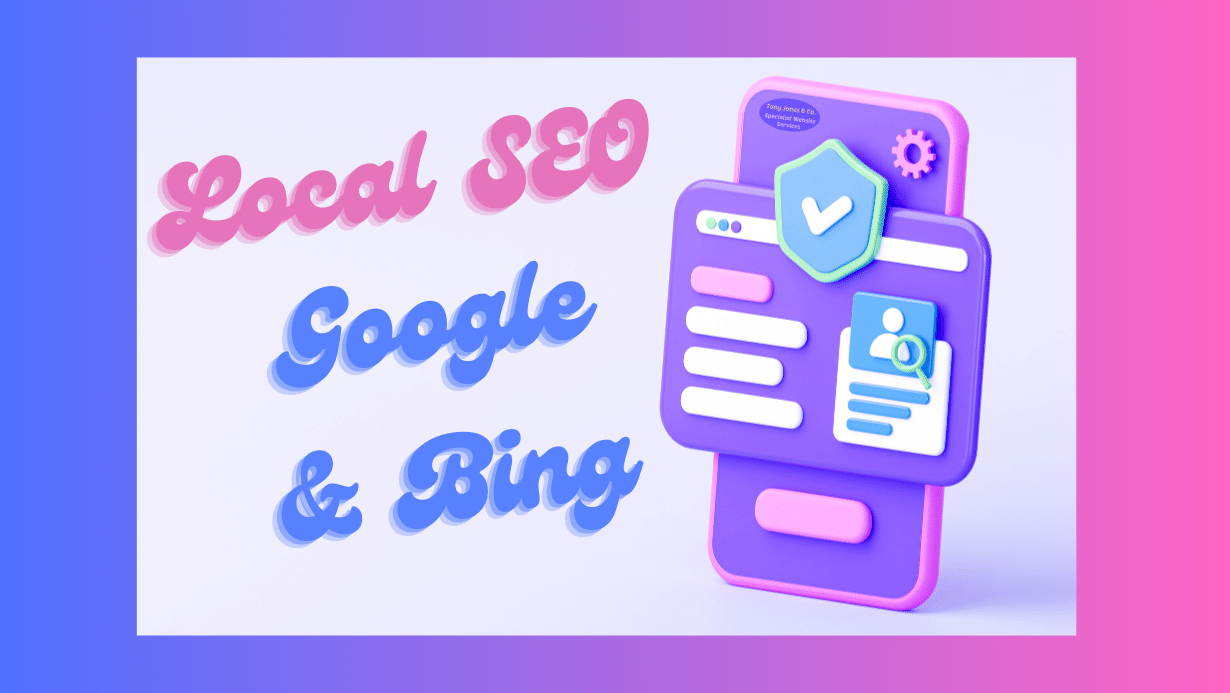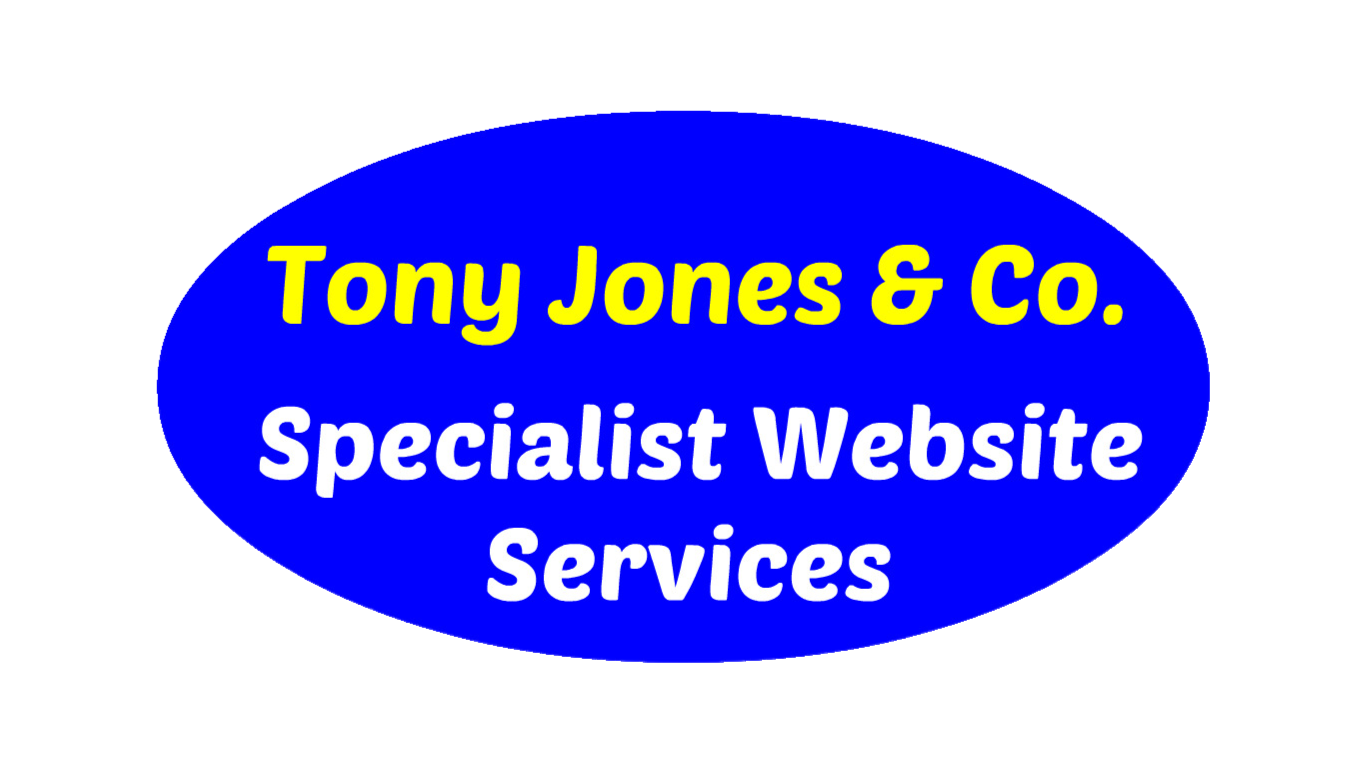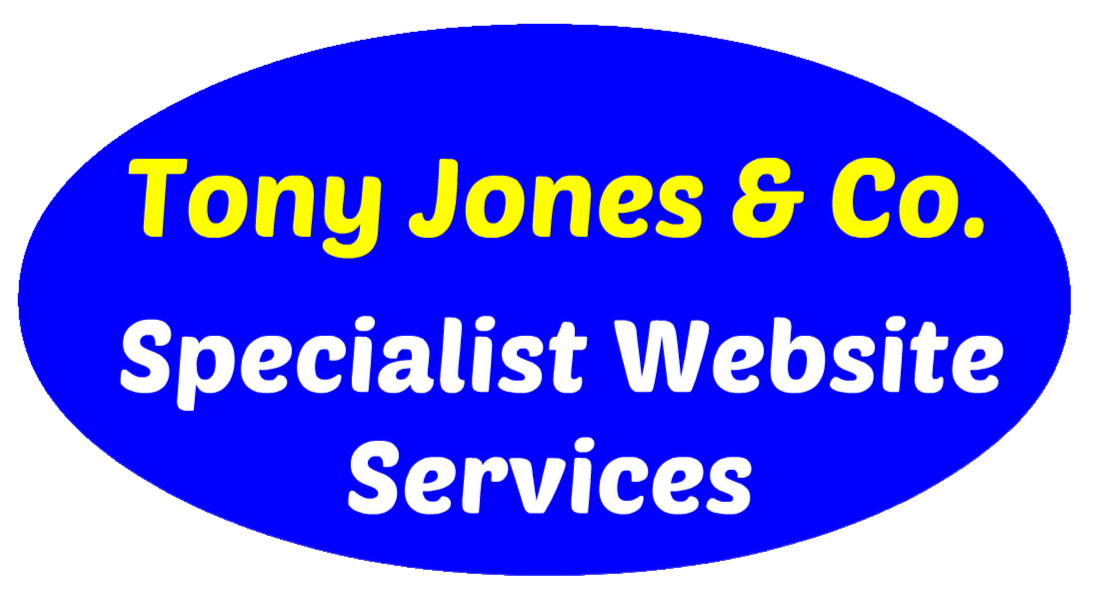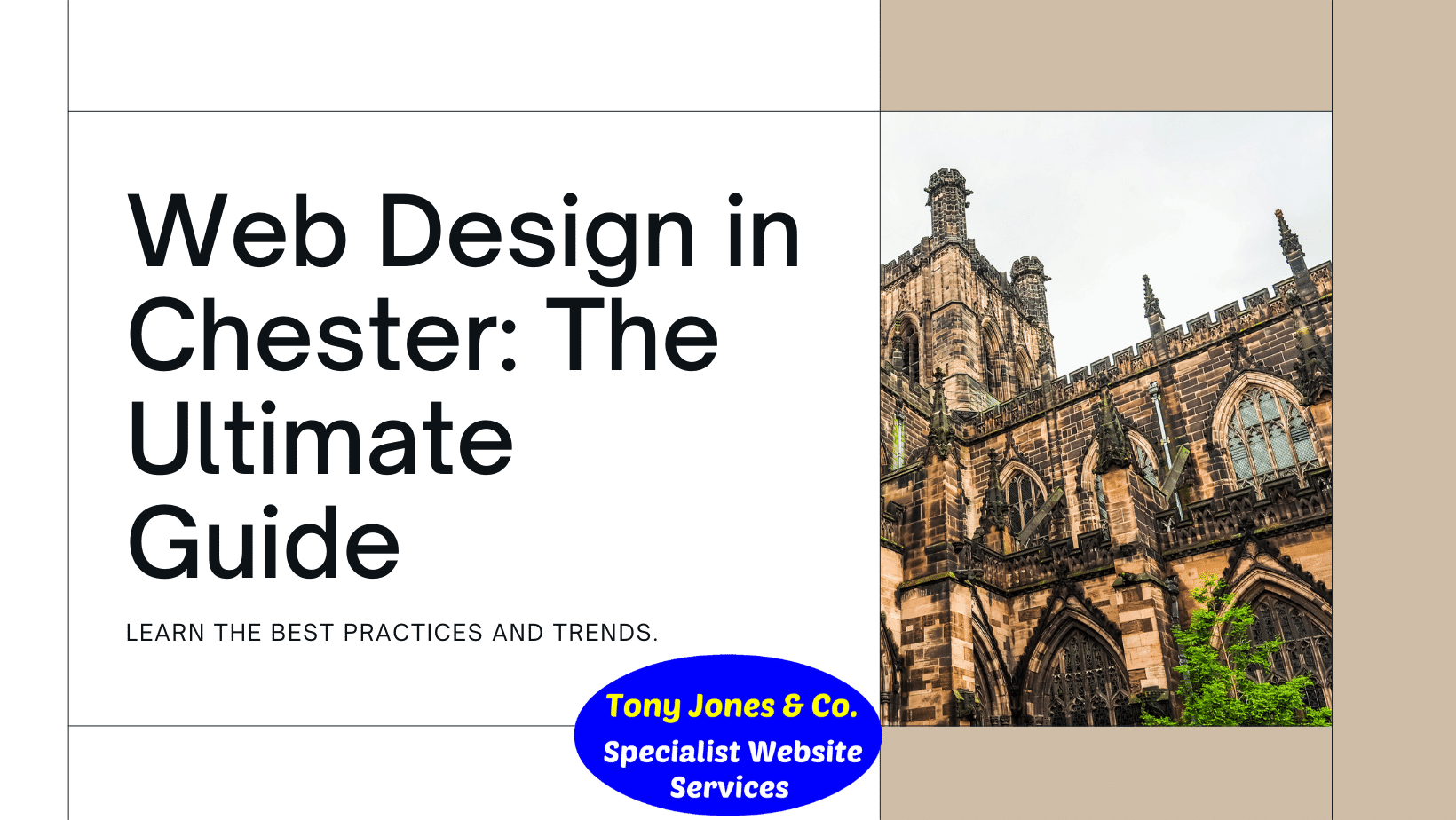Web Designer Wrexham, Professional Website Services - Tony Jones CITP, FBCS.
Cracking the Code: SEO Strategies Every Small Business Website Needs
Creating a strong online presence is crucial for small businesses in today's digital age. One of the key components of a successful online strategy is Search Engine Optimization (SEO).

Creating a strong online presence is crucial for small businesses in today's digital age. One of the key components of a successful online strategy is Search Engine Optimization (SEO).
Importance of SEO for Small Business Websites
SEO refers to the process of optimizing a website to improve its visibility on search engines. Essentially, the better your SEO, the higher your website will rank on search engine result pages (SERPs), leading to increased website traffic and potentially more customers.
For small businesses, implementing effective SEO strategies is particularly important. Given the vast number of websites on the internet, it can be challenging for a small business to stand out. SEO allows your business to reach its target audience by ensuring that your website appears in relevant search results.
By investing in SEO for small business websites, you can:
- Increase visibility: Your website becomes more discoverable to potential customers who are searching for products or services similar to yours.
- Build credibility: High search engine rankings signal to users that your business is a reputable source of information.
- Improve user experience: SEO not only helps with visibility but also enhances the usability of your website, leading to higher user satisfaction.
- Gain a competitive advantage: By ranking higher than your competitors on SERPs, you'll likely attract more website traffic, leading to increased business opportunities.
For more tips on setting up a small business website, check out our article on small business website design tips.
Understanding Basic SEO Terminologies
To get started with SEO, it's essential to understand some basic terminologies:
- Keywords: These are words or phrases that users type into search engines. Your website needs to include keywords that are relevant to your business and your customers' search queries.
- On-Page SEO: This involves optimizing individual webpages on your site, including the content and the HTML source code.
- Off-Page SEO: This refers to actions taken outside of your website to improve its search engine rankings, such as earning backlinks from other reputable websites.
- Technical SEO: This involves optimizing your website for the crawling and indexing phase, ensuring search engines can access and understand your content.
Understanding these terms is the first step in leveraging SEO to boost your online presence. For more information on the requirements of a small business website, read our article on small business website requirements.
In the following sections, we'll delve deeper into each component of an effective SEO strategy, providing you with the knowledge you need to optimize your small business website for search engines.
SEO Strategy Framework
Implementing an effective SEO strategy is paramount in enhancing the online presence of any small business website. The strategy encompasses several key elements including keyword research, on-page SEO, off-page SEO, and technical SEO.
Keyword Research
Keyword research is the foundation of SEO for small business websites. It involves identifying the search terms that potential customers are using to find products or services similar to what your business offers. These keywords should be strategically incorporated into your website content to improve search engine visibility.
The process entails identifying both short-tail (one to three words) and long-tail keywords (more than three words). Long-tail keywords, though less common, often have a higher conversion rate as they are more specific.
Keyword TypeExampleShort-tail"coffee shop"Long-tail"organic coffee shop in Manchester"
On-Page SEO
On-page SEO refers to the optimisation of individual pages on your website. This includes the content itself and the underlying HTML source code. Key on-page SEO strategies include optimising title tags, header tags, meta descriptions, and URLs with relevant keywords. It also includes creating high-quality, original content that provides value to your visitors. For more insights, refer to small business website design tips article.
Off-Page SEO
Off-page SEO involves strategies outside your own website to improve its search engine rankings. This typically means building high-quality backlinks from other reputable websites. Obtaining these backlinks tells search engines like Google that your website is a trusted source of information, thereby improving its rankings. Off-page SEO also includes social media marketing and guest blogging.
Technical SEO
Technical SEO concerns the non-content elements of your website. It involves strategies to improve a site's backend structure and foundation. This includes enhancing the site's readability, site speed, mobile-friendliness, and security features. A well-optimised website is easier for search engines to crawl and index, which can improve ranking and visibility. For a detailed understanding, refer to small business website requirements article.
In conclusion, setting up an effective SEO strategy involves a combination of keyword research, on-page SEO, off-page SEO, and technical SEO. By understanding and implementing these strategies, small businesses can improve their online visibility, attract more potential customers, and ultimately increase their bottom line. Check out our guide on website essentials for small businesses for more comprehensive information.
Detailed SEO Tactics
In order to improve the visibility of your small business website, it's critical to implement detailed SEO tactics. This should involve optimising website content, building high-quality backlinks, ensuring mobile-friendliness, and improving website speed.
Optimizing Website Content
The first step in enhancing SEO for small business websites is to optimise your website content. This involves making sure that your content is relevant, informative, and contains the right keywords that your target audience is likely to use when searching for your products or services.
The use of keywords should be natural and not forced. Additionally, your content should be structured in a way that makes it easy for search engines to understand. This includes using headings and subheadings, bullet points, and short paragraphs. Remember, the goal is to provide value to your audience and not just to rank high on search engines. For more tips on creating effective web content, visit our small business website design tips article.
Building High-Quality Backlinks
Backlinks are links from other websites that lead to your own. High-quality backlinks can significantly improve your website's SEO as they are viewed by search engines as a vote of confidence in your content.
Building high-quality backlinks involves reaching out to other relevant websites or blogs and asking them to link to your content. This can be a time-consuming process but is well worth the effort. Remember, the quality of the backlinks is more important than the quantity.
Ensuring Mobile-Friendliness
With the increasing number of people accessing the internet using their mobile devices, ensuring that your website is mobile-friendly is now more important than ever. A mobile-friendly website is one that looks and works great on all devices, including desktops, laptops, tablets, and smartphones.
Mobile-friendliness is not just important for user experience, but it's also a ranking factor in search engine algorithms. Therefore, if your website is not mobile-friendly, it may rank lower in search engine results. For more information on creating a mobile-friendly website, check out our website essentials for small businesses guide.
Improving Website Speed
Website speed is another crucial factor in SEO. Websites that load quickly provide a better user experience, which can lead to higher engagement rates, more page views, and ultimately, higher search engine rankings.
Improving website speed can involve various tactics, including optimising images, using website caching, and reducing the number of plugins on your site. It's also important to regularly test your website speed to ensure that it remains optimal. For more tips on improving your website's performance, refer to our small business website requirements article.
By implementing these detailed SEO tactics, you can significantly improve the visibility of your small business website on search engines. Remember, SEO is not a one-time task but rather a continuous effort. It's important to regularly monitor your SEO performance and make necessary adjustments to ensure that your website remains visible and relevant to your target audience.
Advanced SEO Strategies
When it comes to SEO for small business websites, it's essential to look beyond the basics and explore advanced SEO strategies. These strategies can often give businesses an edge over their competitors and help them secure a higher ranking on search engine results pages. In this section, we will delve into three key advanced SEO strategies: Local SEO, Voice Search Optimization, and Schema Markup.
Local SEO
Local SEO is a powerful strategy for small businesses looking to attract customers in their local area. It involves optimizing your website to appear in local search results, which are typically triggered when a user includes a local keyword (e.g., "near me" or a specific town or city) in their search query.
Local SEO involves various tactics, such as creating a Google My Business listing, optimizing your website content with local keywords, and generating local reviews. It's also important to ensure that your business's name, address, and phone number (NAP) are consistently listed across all your online platforms. This consistency helps search engines to identify and verify your business's location, thereby improving your visibility in local search results.
For more in-depth information on setting up your small business website, check out our guide on small business website requirements.
Voice Search Optimization
With the rise of digital assistants like Siri, Alexa, and Google Assistant, voice search is becoming increasingly popular. This trend presents a unique opportunity for businesses to optimize their websites for voice search.
Voice search optimization involves optimizing your website content to align with the conversational and question-based queries typically used in voice searches. This can be achieved by incorporating long-tail keywords and phrases that mimic natural speech patterns into your content. Additionally, ensuring that your website is mobile-friendly is crucial, as the majority of voice searches are conducted on mobile devices.
For more guidance on designing a mobile-friendly small business website, take a look at our small business website design tips.
Schema Markup
Schema markup is a form of microdata that helps search engines to understand the content on your website. By adding schema markup to your website, you can provide search engines with additional context about your content, which can enhance your visibility in search results.
Schema markup can be used to provide additional details about a wide range of content types, such as products, events, and reviews. This, in turn, can enhance your search result listings with rich snippets, which can increase your click-through rates and drive more traffic to your website.
For more insights into website essentials for small businesses, check out our article on website essentials for small businesses.
By implementing these advanced SEO strategies, small businesses can enhance their online visibility, attract more targeted traffic, and ultimately drive more sales. As with all SEO efforts, it's important to continuously monitor your performance and make necessary adjustments to stay ahead of the game. For more information on this, refer to our guide on website analytics for small businesses.
SEO Tools and Resources
When it comes to optimising seo for small business websites, having the right tools and resources at your disposal can make a significant difference. These resources can assist in implementing and monitoring your SEO strategies more effectively.
Overview of SEO Tools
SEO tools are software or online services that help you perform various SEO tasks more efficiently. They can aid in keyword research, on-page SEO, off-page SEO, and technical SEO. These tools can provide insights into your website's performance, identify areas for improvement, and help you track the progress of your SEO efforts.
For example, some SEO tools can help you identify the most relevant keywords for your business, analyse your website's structure and content, check for broken links, monitor backlinks, and much more. They can also provide detailed reports and analytics that can guide your SEO strategy and help you make informed decisions.
It's important to note that while some SEO tools are quite comprehensive, others are more specialised, focusing on specific aspects of SEO. Depending on your needs and budget, you may choose to use a combination of these tools to achieve your SEO goals.
Free and Paid SEO Resources
There are numerous free and paid resources available that can assist in enhancing your SEO knowledge and skills. These resources can range from SEO guides and tutorials, to webinars, online courses, and even SEO-focused blogs and forums.
Free resources can be a great starting point, especially for small businesses on a tight budget. They can provide a wealth of information and are often updated regularly to keep up with the ever-changing SEO landscape. Some free resources also offer interactive features, such as forums or comment sections, where you can ask questions and get advice from SEO experts.
Paid resources, on the other hand, often provide more in-depth and specialised information. They may also offer additional features, such as access to premium SEO tools, personalised advice, and ongoing support. While paid resources typically require an initial investment, they can provide significant value in the long run, particularly for businesses with more complex SEO needs.
As you explore different resources, remember to always consider the credibility of the source. SEO is a complex field with many different aspects, and it's important to ensure that the information you're getting is accurate and up-to-date.
For a more comprehensive guide on setting up a small business website, check out our articles on small business website design tips, small business website requirements, and website essentials for small businesses. We also recommend reading our article on small business website security measures to ensure the safety of your online platform. To better understand your website's performance, our guide on website analytics for small businesses is also a valuable resource.
Monitoring and Improving SEO Performance
After implementing various SEO strategies for small business websites, the next crucial step is to monitor and improve the website's SEO performance. This is where analytics play a significant role.
Importance of Analytics
Analytics provide quantitative data that can be used to measure the success of your SEO efforts. With the help of analytics, you can gain insights into how your website is performing in terms of traffic, user engagement, and conversions, among other factors. By analysing these metrics, you can identify areas of improvement and adjust your SEO strategies accordingly. For a more comprehensive understanding of website analytics, visit our article on website analytics for small businesses.
Key SEO Metrics to Monitor
There are several key SEO metrics that every small business website should monitor:
- Organic Traffic: This refers to the visitors who reach your site through search engine results, reflecting the effectiveness of your SEO efforts.
- Bounce Rate: This is the percentage of visitors who leave your website after viewing only one page. A high bounce rate might indicate poor user experience or irrelevant content.
- Conversion Rate: This is the percentage of visitors who complete a desired action on your website, such as making a purchase or subscribing to your newsletter.
- Page Loading Speed: This measures how quickly your website pages load. Slow page loading speed can negatively affect your SEO.
- Keyword Ranking: This shows the position of your website in search engine results for specific keywords.
SEO Metric Description Organic Traffic Number of visitors who reach your site through search engines Bounce Rate Percentage of visitors who leave after viewing only one page Conversion Rate Percentage of visitors who complete a desired action Page Loading Speed Time it takes for your web pages to load Keyword Ranking Position of your website in search engine results for specific keywords
Continuous SEO Improvement Strategies
SEO is not a one-time project, but a continuous process that requires regular monitoring and improvement. Some strategies for continuous SEO improvement include:
- Regularly Update Content: Keeping your website content fresh and up-to-date can improve your search engine ranking.
- Optimize for Mobile: With the increasing number of mobile internet users, optimizing your website for mobile devices is crucial.
- Encourage Backlinks: Backlinks from reputable websites can boost your website's credibility and search engine ranking.
- Improve User Experience: A user-friendly website can lower your bounce rate and increase your conversion rate.
By investing time and effort in monitoring and improving your website's SEO performance, you can effectively reach your target audience, increase your online visibility, and drive more traffic to your website. Don't forget to check out our articles on small business website design tips and small business website requirements for more useful information.
About the author Tony Jones CITP FBCS:
An experienced and qualified Web Designer based in Wrexham, a Chartered IT Professional and a Fellow of the British Computer Society.
Contact us
We will get back to you as soon as possible
Please try again later
More news and articles: - Websites, Design, SEO, Artificial Intelligence, anything Digital Technology.


All Rights Reserved | TonyJones & Co.









